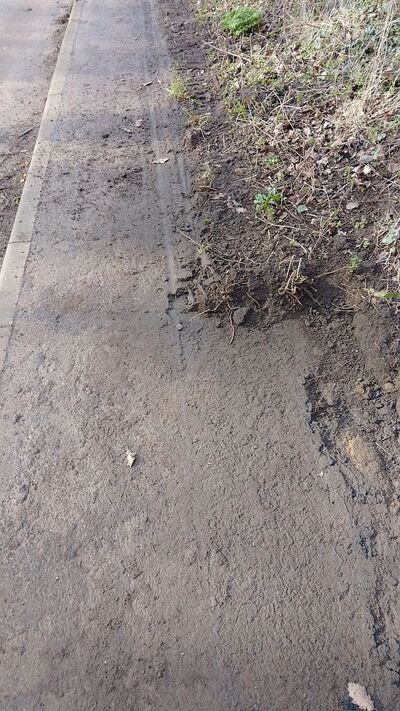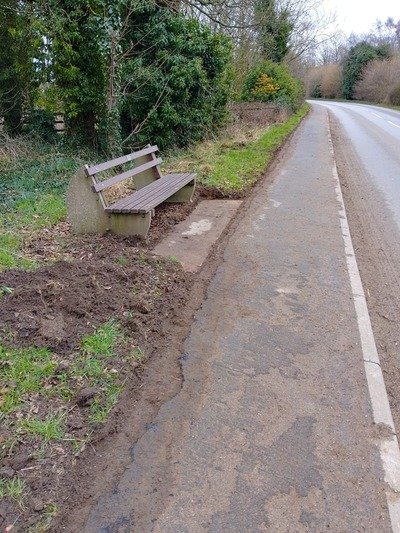Beyond the Vicious Cycle: A Data-Driven Case for Proactive Surface Management
This data-driven post makes the case for proactive surface management, showing how a shift in strategy can reduce long-term liabilities, and deliver better public spaces.
Every council in the UK is facing the same immense pressure: budgets are squeezed, public expectations are high, and long-term infrastructure costs are spiraling. For years, the industry standard has been a reactive model for weed control. While often effective in the short term, this approach is now facing a new reality of spiraling hidden costs and increasing regulatory pressure.
This isn't about blaming a single tool; it's about re-evaluating an entire process. It's time to move beyond the vicious cycle of reactive work and make the business case for a smarter, more sustainable, and more profitable system of professional asset management.
The True Cost of Inaction: The Data Behind the Decay
Viewing detritus and weed buildup as a simple "tidiness" issue is a failure to see the real problem. A reactive-only strategy, where we wait for problems to appear before we treat them, has three massive, hidden liabilities that are accumulating on council balance sheets every year.
1. The Infrastructure Liability (and its Accelerating Cost):
Detritus isn't just dirt; it's a sponge. It holds moisture against the pavement, blocks drainage channels, and provides a medium for root systems to grow. In winter, this trapped moisture freezes and expands, causing cracks and accelerating the degradation of the hard surface.
This isn't a theoretical risk; it's a multi-billion-pound crisis. The 2024 ALARM Survey from the Asphalt Industry Alliance (AIA)—the industry's benchmark report—states that the one-time cost to fix our local roads has reached a staggering £16.3 billion. The report consistently highlights that a primary cause of this decay is water ingress and frost damage—the very issues exacerbated by detritus.
To see how this national crisis is accelerating at a local level, look at North Yorkshire Council. According to their own data, the number of potholes they filled surged by nearly 50% in a single year, jumping from just over 8,000 in 22/23 to almost 12,000 in 23/24. This isn't a blip; it's a national trend. Based on the ALARM survey's average reactive repair cost of over £80 per pothole, that surge represents a direct, reactive spend of nearly £1 million in a single year on just filling holes. This is the financial death spiral of the reactive model in action.

2. The Legal & Financial Liability: (A National and Accelerating Crisis):
Under Section 89 of the Environmental Protection Act, councils have a statutory duty to keep highways clear of detritus. Neglecting this duty is not just a breach of compliance; it is a direct and rapidly escalating exposure to financial risk. The connection is simple: detritus traps moisture, creating the perfect conditions for slippery moss and algae, while the weeds it supports create the cracks and uneven paving slabs that lead to trip claims. These incidents represent one of the single biggest liability costs for local authorities, running into tens of millions of pounds annually across the UK.
This is not a static problem; it's a crisis that is getting worse. A 2024 investigation by the RAC revealed that compensation claims against major councils for surface defects more than doubled in a single year. A prime example is Hampshire County Council, which previously paid out over £1.1 million in claims over a five-year period. In the RAC's recent data, this same council saw claims surge from 750 to 2,654 in just twelve months. When claims can more than triple in a single year, a reactive strategy is a catastrophic risk management failure. The cost of a proactive sweeping programme is a fixed investment; the cost of inaction is an unpredictable and accelerating liability.
3. The Vicious Cycle Liability (A Proven European Case Study):
The financial penalty of a reactive model is a predictable cycle proven at a national scale in Europe. The ban on pesticides in France provided a perfect "natural experiment," revealing the true cost of neglecting the root cause. The data, compiled in authoritative technical guides from French public bodies for their municipalities, shows two starkly different outcomes:
Scenario A: The Reactive "False Economy". Municipalities that simply replaced their sprayers with a reactive thermal tool (like a flame lance) but did not change their strategy of ignoring detritus saw their costs skyrocket. To maintain a high standard, technical guides confirmed they were forced to make eight to ten passes per year (Using flame).
- Scenario B: The Proactive "Best Value" Solution. The research then proved the solution. In Year 1, by implementing a proactive, mechanical sweeping programme to remove detritus first—the foundational preventive technique recommended by French agricultural bodies (like the DRAAF)—municipalities slashed the number of expensive thermal passes required. The new, integrated approach required just three to four passes per year, (Using Flame) an immediate operational saving of over 60%.
This initial saving, however, is just the first part of the story. The real financial prize is the compounding, year-on-year dividend. This is proven by a separate, multi-year study in the journal "Weed Research" on non-chemical control in Denmark. The Danish research tracked the effect of consistent mechanical brushing and proved the long-term benefit: by the second year, the study recorded a further 50% reduction in weed density compared to the first year.
The European data tells a clear, two-part story. First, the French experience proves you can cut your reactive workload by over 60% in Year 1. Second, the Danish experience proves you can cut the remaining problem in half again in Year 2. This is the only way to break the vicious cycle.

The Solution: Shifting from a "Cost" to an "Investment"
The industry is already evolving. High-tech, intelligent spot-spraying systems are a huge leap forward from inefficient blanket spraying. But even the most advanced 'surgical' application is still fighting a losing battle if the surface is a fertile seedbed.
The most professional and profitable approach is a modern, integrated system. It begins with a capital investment in preventative asset maintenance.
By making proactive mechanical sweeping the foundational first step, you are not just killing weeds; you are investing money to:
- Extend the lifecycle of your most valuable assets (your pavements and highways).
- Reduce your public liability exposure by creating safer public spaces.
- Escape the financial death spiral of ever-increasing reactive maintenance costs.
The success of this model is not theoretical. It's happening now. Councils like Cambridge City are already investing in their second and third machines because the results are so effective that their own staff are demanding them. As one manager told us: "Both machines are excellent, and the team has been very pleased with how well they perform."
Your Next Move: Break the Cycle
The choice is no longer between a cheap spray and an expensive machine. The choice is between a "false economy" with huge, hidden liabilities and a smart, proactive investment that delivers a safer, more compliant, and more resilient public realm.
The data from the AIA, FOI requests, and the large-scale experience in Europe is clear: the reactive model is a financial and operational dead end.
The most logical, compliant, and financially prudent first step is to break the vicious cycle. By adopting a proactive model and beginning a professional programme of mechanical brushing, you are not just treating a symptom; you are making a long-term investment in the safety, quality, and financial sustainability of your public spaces, while reducing the application of whatever reactive treatment you apply, whether it is glyphosate, hot water, hot air, electricity or anything else.
Check out our page on Integrated Weed Management for more information.
https://kerstenuk.com/integrated-weed-management-for-amenity
No comments yet. Login to start a new discussion Start a new discussion